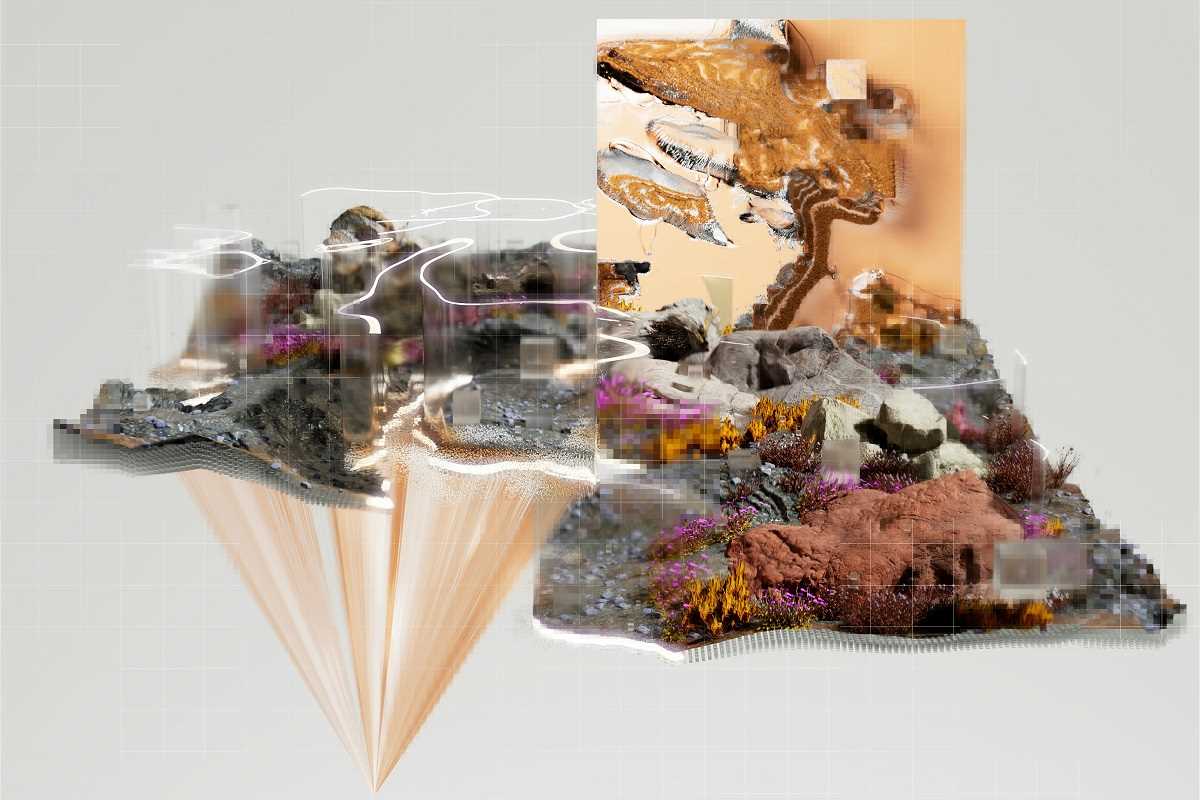Artificial intelligence (AI) and climate tech are driving transformations across multiple industries, but their intersection is where true innovation takes root. This convergence offers solutions to some of the world’s most pressing challenges, blending the computational power of AI with the environmental focus of climate technology. These two sectors are no longer working in silos. Instead, their collaboration is creating entirely new career paths, opening doors to opportunities for those passionate about both technology and sustainability.
Whether you're a tech enthusiast curious about AI's capabilities or someone deeply passionate about climate solutions, there's an expanding field waiting for you. Let's take a closer look at how AI and climate tech are merging, the exciting careers emerging from their collaboration, and why they matter.
What Happens When AI Meets Climate Tech?
To understand the growing opportunities in this space, it helps to explore how AI supercharges climate technologies. AI specializes in processing massive volumes of data and can identify patterns and insights far beyond human capabilities. Climate tech, on the other hand, focuses on combating climate change through innovative technologies. Together, they form a powerful alliance.
Here’s how these two fields join forces:
- AI models predict climate patterns. Advanced machine learning models can analyze historical Earth data to forecast weather and climate patterns. For example, AI-powered climate modeling can anticipate hurricanes, droughts, and rising sea levels with improved accuracy. This allows governments and communities to prepare and respond more effectively, potentially saving lives and reducing damage.
- AI-powered sensors monitor environmental conditions. AI is enhancing the power of IoT (Internet of Things) devices, from monitoring carbon dioxide levels in urban areas to tracking deforestation in real-time. For example, AI satellite systems use computer vision to monitor ice caps melting or track illegal mining operations, delivering actionable insights for environmental protection.
- Optimize energy efficiency. AI-driven algorithms are already being used to fine-tune energy consumption. Major building management companies, for instance, are integrating AI systems that adjust energy usage based on occupancy and local weather forecasts, significantly lowering both energy costs and emissions.
The synergy between AI and climate tech creates multiple avenues for innovative solutions. These solutions, in turn, are driving demand for interdisciplinary professionals who blend tech expertise with climate knowledge.
7 Careers Emerging from the AI + Climate Tech Intersection
The fusion of AI and climate tech is setting the stage for careers that didn’t exist a decade ago. Below are some of the most promising roles that have arisen from this convergence, along with expanded details, examples, and insights into their potential.
1. Sustainability Data Scientist
Sustainability data scientists transform raw climate data into predictions and actionable strategies. Governments, non-profits, and corporations use these insights to tackle challenges like carbon emissions, extreme weather events, and resource depletion.
One example is companies like Google, which uses AI to measure building energy consumption and carbon emissions. Sustainability data scientists develop algorithms that turn sensor data into actionable climate solutions. Additionally, recent studies estimate that the global carbon management market, now worth $12 billion, is expected to exceed $25 billion by 2030, which highlights the burgeoning demand for professionals in this field.
Key Skills Needed:
- Knowledge of machine learning frameworks like TensorFlow or Pytorch for model development.
- Familiarity with programming languages such as Python for automation and environmental data analysis.
- Understanding geospatial data analysis tools like QGIS helps map events like wildfires and floods.
2. Green AI Engineer
The irony isn’t lost on innovators that training AI models can itself be energy-intensive. For instance, training a large language model like OpenAI’s GPT requires the same amount of electricity as some small towns consume in a month. Enter Green AI engineers, who focus on creating energy-efficient machine learning systems.
This career combines computing with sustainability. A growing number of tech companies are adopting Green AI principles, promising models with lower "carbon footprints." Can AI models be trained using exclusively renewable energy or zero-carbon data centers? Green AI engineers develop creative ways to answer that question.
Key Skills Needed:
- Deep understanding of machine learning architectures.
- Proficiency in building scalable systems that consume less processing power.
- Familiarity with renewable energy tech.
3. Climate Risk Analyst
For industries reliant on consistent weather or stable natural resources, understanding and mitigating environmental risks are increasingly vital. Enter climate risk analysts, who evaluate vulnerabilities by interpreting predictive AI models.
For instance, wine-producing regions worldwide are looking at AI forecasts to understand how shifting microclimates might influence crop quality. Simultaneously, real estate developers use AI simulations to identify areas vulnerable to floods or wildfires for more resilient construction.
According to the World Bank, climate-related disasters have cost $2.5 trillion over the last two decades. Experts who can anticipate and communicate risks will be indispensable as the calamities linked to climate change become more frequent.
Key Skills Needed:
- Knowledge of AI-driven predictive modeling tools.
- Ability to analyze economic effects of environmental disasters.
- Strong communication skills to translate technical analyses into actionable strategies.
4. Energy Systems Developer
Smart energy systems hold enormous potential in fighting climate change. Companies around the globe are focusing on projects like autonomous microgrids, AI-managed solar panel farms, and energy-efficient wind turbines. Energy systems developers design these technologies, making clean energy solutions smarter and more accessible.
For instance, organizations like Tesla are leveraging AI to improve the efficiency of their large-scale batteries and solar grids. Projects like these are critical as the IEA (International Energy Agency) predicts that clean electricity needs to scale fourfold by 2030 to meet net-zero goals.
Key Skills Needed:
- Strong grounding in renewable energy systems like solar and wind energy.
- Proficiency in IoT and smart grid technologies.
- Analytical experience in systems optimization.
5. Sustainable Product Manager
Not all roles demand deep technical expertise. Take the role of sustainable product managers, professionals who oversee climate-tech-driven product lifecycles, from development to commercialization. For example, a sustainable product manager might lead the creation of AI-based recycling apps that guide users on waste sorting or spearhead a project for AI-powered waste classification systems in municipalities.
Successful professionals in this industry marry project management skills with a passion for eco-impactful innovation. The global green product market is forecasted to exceed $150 billion by 2030, opening countless opportunities across industries.
Key Skills Needed:
- Knowledge of consumer behavior and market trends in sustainability.
- Ability to lead cross-functional teams.
- Understanding of AI's advantages in daily tools and business applications.
6. AI-Driven Environmental Scientist
Environmental scientists traditionally relied on manual processes or generalized models to study ecosystems. AI now allows these professionals to perform advanced simulations or assess data with precision. An AI-driven environmental scientist can predict scenarios like the resurgence of endangered species by training species-population models with satellite data.
For example, in 2023, AI restored sections of the Great Barrier Reef by detecting coral growth patterns. This method delivered insights for highly targeted reforestation efforts tailored to reef ecosystems.
Key Skills Needed:
- Understanding how to leverage AI technologies like neural networks.
- Knowledge of practices in conservation biology and resource management.
- Experience with ecological data resources.
7. Carbon Accounting Specialist
Carbon accounting helps companies assess value chains to pinpoint emission hotspots. With AI-powered tools, carbon accounting specialists enhance efficiencies, offering comprehensive insight into a company’s overall carbon footprint. Amazon Climate Pledge reports teach businesses “where hidden costs lie for averting emissions.”
Adopting cutting-edge simulation automation, advanced models reduce complexities most organizations ignore.
Skills To Highlight
Familiarity w Net-zero measurement benefit toolsNOT Repeat points addressed fold accountable







